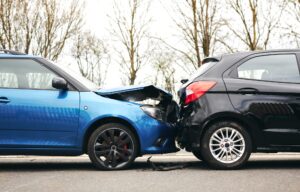Table of Contents
ToggleThe Inside Scoop on How Insurance Companies Will Fight Your Los Angeles Personal Injury Claim

Insurance companies are for-profit businesses no less than used car dealerships are. They turn a profit by maximizing their income and minimizing their expenses. Accepting premiums results in income, while paying claims results in expenses. This harsh truth is why an insurance company can never be a “good neighbor” to a personal injury claimant.
Ordinary Claims vs. Third-Party Claims
In an ordinary insurance claim, you file your claim against the insurance company with which you purchased a policy. In a third-party insurance claim (common among car accident claimants), you file your claim against the at-fault party’s liability insurance policy. Either way, the insurance company must pay your claim if it is valid.
Inherent Limitations on the Value of Your Claim
There are two ways to calculate the value of your personal injury claim: its textbook value and its likely value. The likely value of your claim is textbook value minus the value of any inherent limitations. Below are four of the most common inherent limitations on the value of a personal injury claim against an insurance company.
Comparative Negligence
Comparative negligence measures the extent to which you are partly to blame for the accident that injured you. In California, it is strictly proportional. If you are 20% at fault, you will lose 20% of your damages, and you must pay 20% of the defendant’s damages (if they have any). The same general rule applies if you are, say, 65% at fault.
Insurance Policy Limitations
No matter how compelling your claim, no insurance policy has an obligation to pay you a dime more than the policy limits. If that limit is $50,000, for example, $50,000 is the most you can get. The only way around this one is to file an insurance bad faith claim against an insurance company that has been using “black hat” techniques against you.
The Persuasiveness of Your Evidence
The persuasiveness of your evidence drastically affects your likelihood of winning in court. The greater your likelihood of winning in court, the more money the insurance company is likely to be willing to pay you to settle out of court. The opposite is true as well-–the less persuasive your evidence, the less the insurance company will be willing to pay to settle your claim out of court.
Your Negotiating Skills
Your negotiating skills, or the negotiating skills of your lawyer, make a big difference when you attempt to settle a personal injury claim. Don’t try to negotiate with an insurance adjuster unless the value of your claim is trivial. Instead, let your lawyer do the negotiating for you.
10 Ways Insurance Adjusters May Try To Mess With Your Claim
Insurance adjusters all seem to work out of the same bag of tricks. Following are some of the contents of that bag.
Lowballing You
Issuing you an incredibly low offer hoping you will accept it out of desperation. They especially like to do this while you are still in the hospital.
Delay, Delay, Delay…
The more the insurance company delays, the closer the statute of limitation deadline for filing a lawsuit becomes. Don’t let them get away with it.
“You Don’t Need a Lawyer”
Yes, you do. If you didn’t, they wouldn’t even bother to tell you that you don’t need one. They tell you that you don’t need a lawyer precisely because the opposite is true.
“Reasonable and Necessary” Expenses
Your expenses, especially your medical expenses, must be “reasonable and necessary.” Insurance companies love to quibble over this potential loophole.
Spying on You
Insurance companies will spy on your social media accounts for evidence that your injuries aren’t that serious. They might even send a private investigator into your neighborhood.
“Going Fishing” for a Pre-Existing Condition
If the insurance company gets hold of your complete medical records, they will search diligently for an old injury they can blame your current condition on so they don’t have to pay for it.
Using Your Own Words Against You
Consider the following exchange between you and an insurance adjuster. “How are you?” “I’m fine…” “Well, if you’re fine, you must not be as seriously injured as you say you are.” Get the idea? Be very careful what you say to the insurance adjuster.
The Blame Game
The insurance adjuster will use comparative negligence to chip away at your claim, hoping to “nickel and dime you to death.” They will call into question anything you might have done at the time of the accident.
Misrepresenting Policy Language
Many insurance policies are written in “legalese” for a reason. Don’t let the insurance adjuster exploit this to confuse you. Your lawyer can read legalese just as well as the insurance adjuster can.
Devaluing Your Pain and Suffering
Things like pain and suffering, mental anguish, and emotional distress are hard to put a dollar value on. The insurance adjuster will exploit this ambiguity to downplay the value of your non-economic damages.
Fighting Back: The “Attitude Adjustment” Strategy
The best move you can make when an insurance company is playing games with your claim is to hire a personal injury attorney with an outstanding record of winning in court. This move typically produces a marked “attitude adjustment” by the insurance company that, ironically, tends to lead to out-of-court settlements on generous terms..
Playing Hardball: Insurance Bad Faith
An insurance bad faith claim is a claim for money damages that you assert when an insurance company has mishandled your valid claim. To win, you must show that the insurance company deliberately treated you unfairly. Insurance bad faith claims are not easy to win, but they can pay off big if you do win.
If you win such a claim, you can win two separate awards: one for your economic losses and another for your emotional distress. In extreme cases, you might even win punitive damages, which would result in a third sum of money. Your lawyer can help you pursue an insurance bad faith claim.
Yes, You Need a Lawyer!
You do need a lawyer, at least if you have a reasonably large claim. Yet you might not realize the true value of your claim until you consult a lawyer. At the very least, try to schedule a free initial consultation with an experienced Los Angeles personal injury lawyer. Keep in mind that any reputable personal injury lawyer won’t charge you a dime unless they collect compensation for you.
Contact Our Personal Injury Law Firm in Los Angeles, CA
If you were injured in an accident in Los Angeles, CA or you lost a loved one and you need legal assistance, please contact us to schedule a free consultation. One of our Los Angeles car accident lawyers at M&Y Personal Injury Lawyers will get in touch with you soon.
M&Y Personal Injury Lawyers – Los Angeles Office
4929 Wilshire Blvd Suite 960,
Los Angeles, CA 90010
866-864-5477
M&Y Personal Injury Lawyers – Downtown Office
350 S Figueroa St Suite 276
Los Angeles, CA 90071
(877) 751-8953




